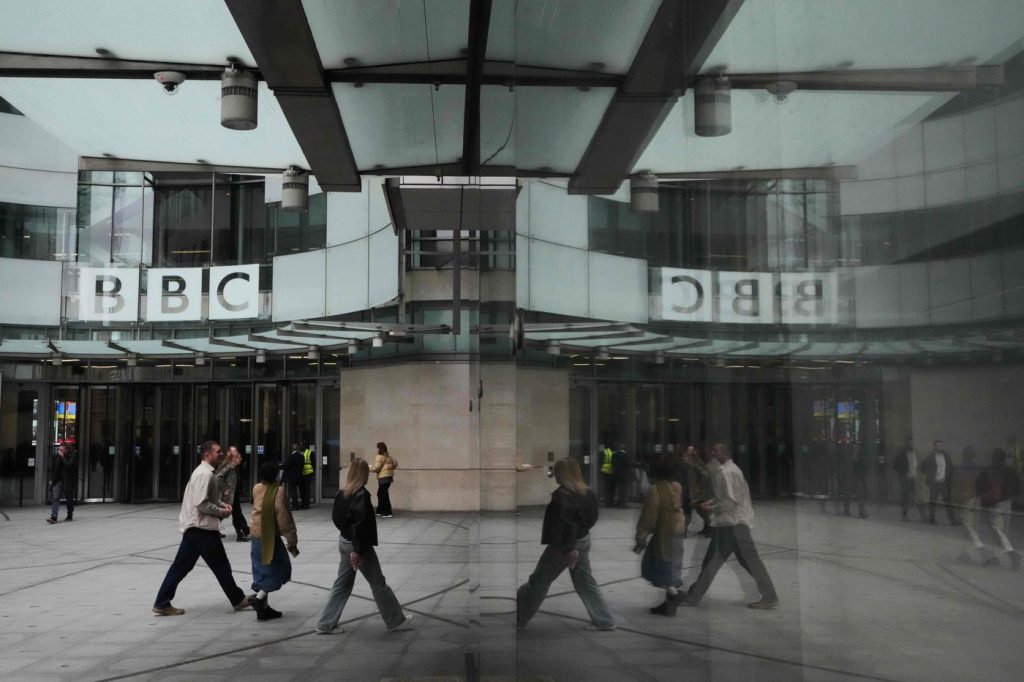LONDON (AP) — President Donald Trump's legal threat against the BBC, aiming for a billion-dollar lawsuit, has raised concerns about the broadcaster's future, yet experts suggest it may lack substantial legal merit. The assertion comes from Trump's legal team, who objected to how the BBC edited a documentary presenting his January 6, 2021, speech linked to the Capitol riots.
The documentary featured on the BBC's "Panorama" series, titled "Trump: A Second Chance?", aired shortly before the 2024 U.S. presidential election. It meticulously spliced quotes from Trump's speech, which occurred almost an hour apart, creating a singular narrative that appeared to urge his supporters to "fight like hell." Critics noted that crucial context was omitted, particularly Trump's call for peaceful demonstrations.
BBC Chairman Samir Shah acknowledged the misleading edit, admitting it gave the impression of a direct call to violence. This acknowledgment led to the resignations of Director-General Tim Davie and news chief Deborah Turness over accusations of editorial bias and misleading content.
However, Trump's potential defamation lawsuit in the UK hit a snag as the one-year deadline to file such claims recently expired. Trump’s lawyer referenced Florida law in correspondence with the BBC, suggesting the possibility of filing in the U.S. Nonetheless, experts emphasize that succeeding in such a suit presents numerous obstacles, especially given that the documentary did not air in the U.S. and thus could not have altered Americans’ perceptions of Trump.
Legal experts argue that proving additional harm to Trump's already tarnished reputation from the BBC documentary would be a challenging task. Attorney Mark Stephens pointed out that claiming defamation under these circumstances, where Trump’s public image was already compromised post-January 6, would be difficult.
The demands from Trump's legal team were explicit, calling for an apology and a fair retraction of the documentary, alongside compensation for supposed reputational and financial harm. The letter established a deadline of 5 p.m. EST Friday for compliance, threatening that failure to adhere would result in legal action.
Historically, Trump has engaged in multiple lawsuits against media entities, some resulting in significant settlements, like the $16 million from Paramount over a "60 Minutes" interview and $15 million from ABC News concerning inaccurate reporting. These instances highlight Trump's assertive legal tactics against perceived media injustices, although many legal analysts remain skeptical about the prospects of Trump’s claims against the BBC succeeding.
George Freeman, an executive director at the Media Law Resource Center, described Trump's billion-dollar claim as "totally meaningless" and suggested that such threats typically serve to intimidate the media rather than involve actual litigation. He noted that Trump's past interactions with the media often involve threats rather than follow-through on lawsuits.
While Trump could potentially inflict significant harm on the BBC if awarded damages, experts urge the broadcaster to maintain its position and not capitulate to Trump's pressure. Stephen emphasized the importance of addressing the journalistic standards upheld by the BBC while questioning the overall impact of the documentary on Trump's reputation, particularly since he successfully won the presidency in the subsequent election.











